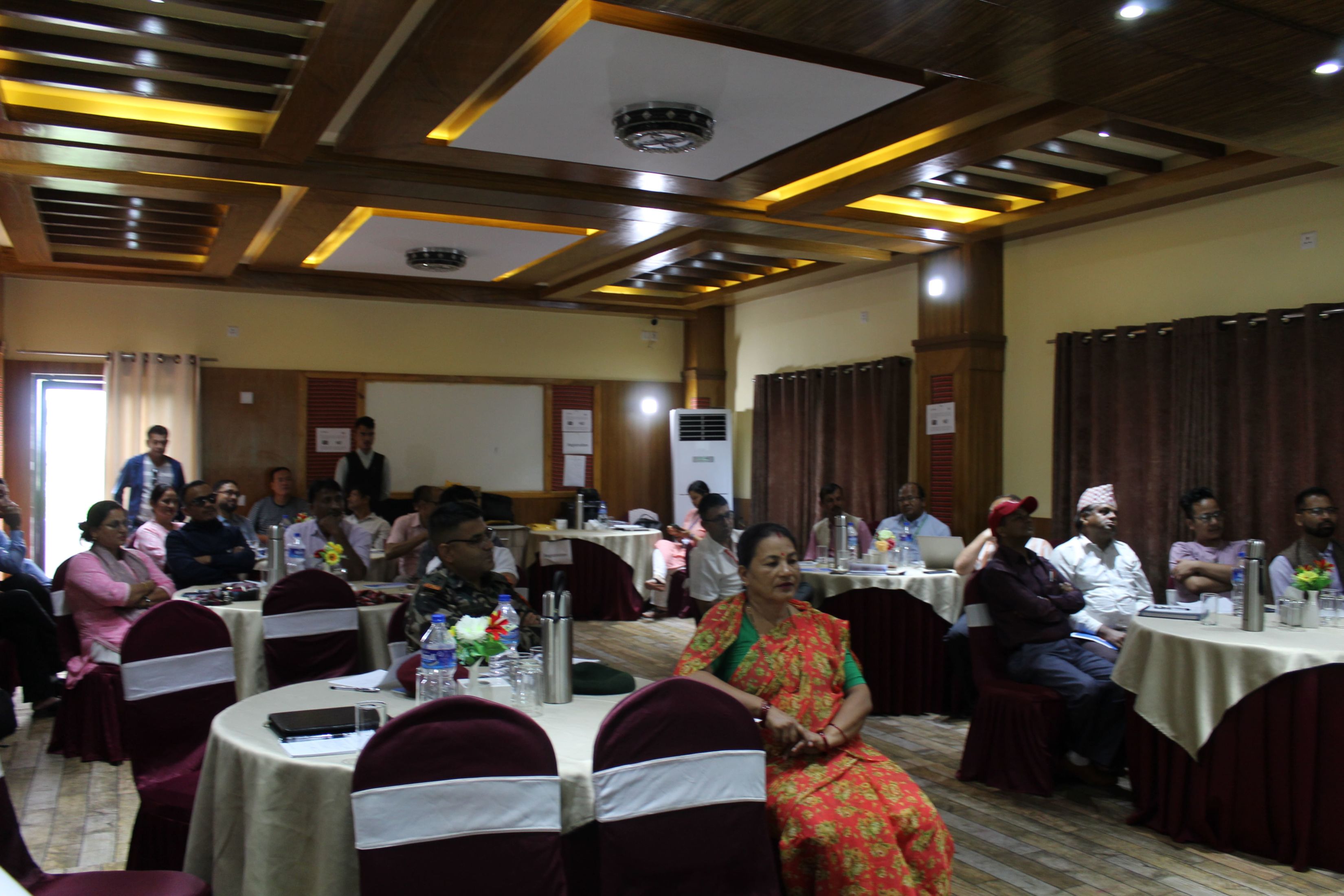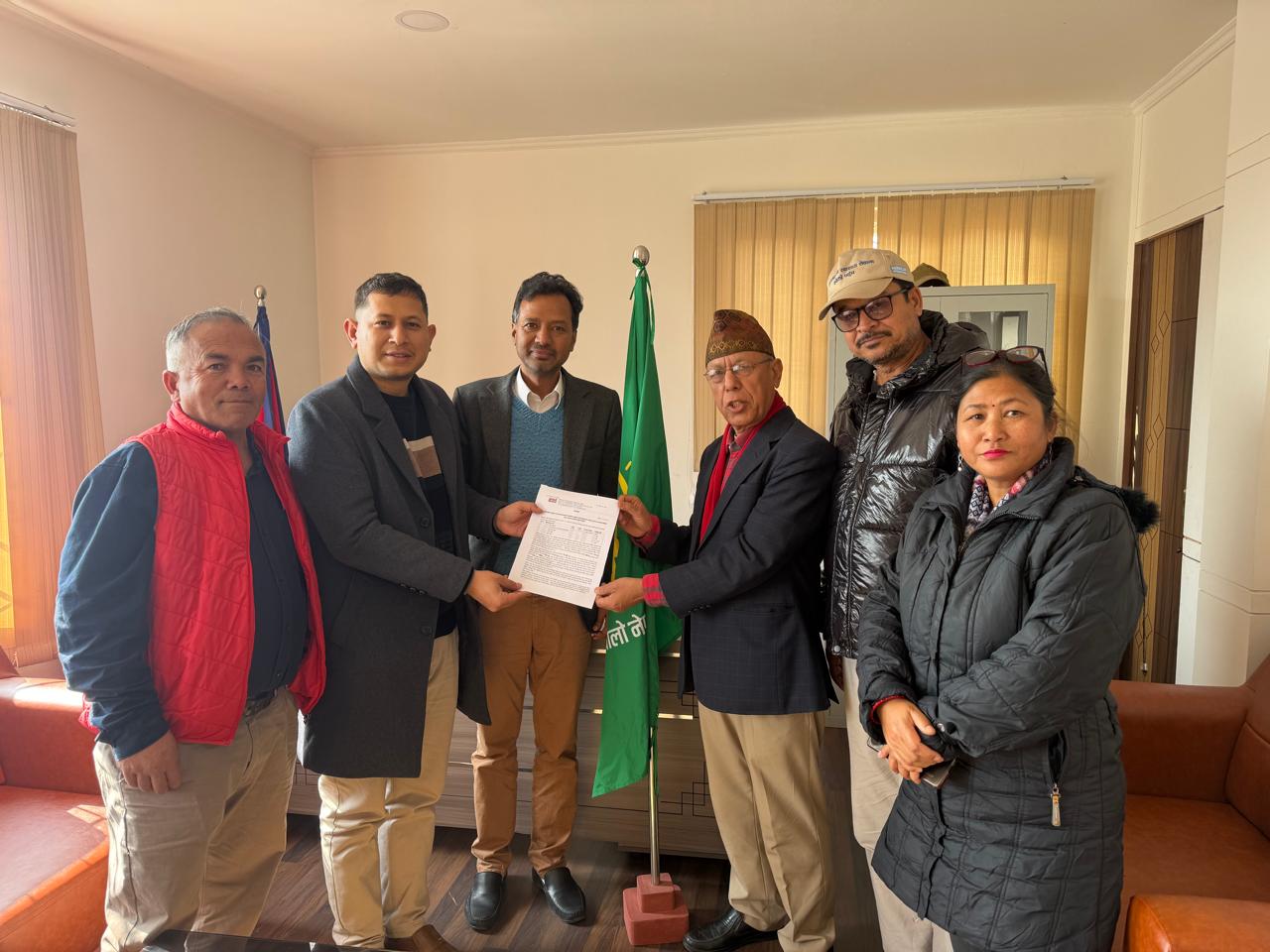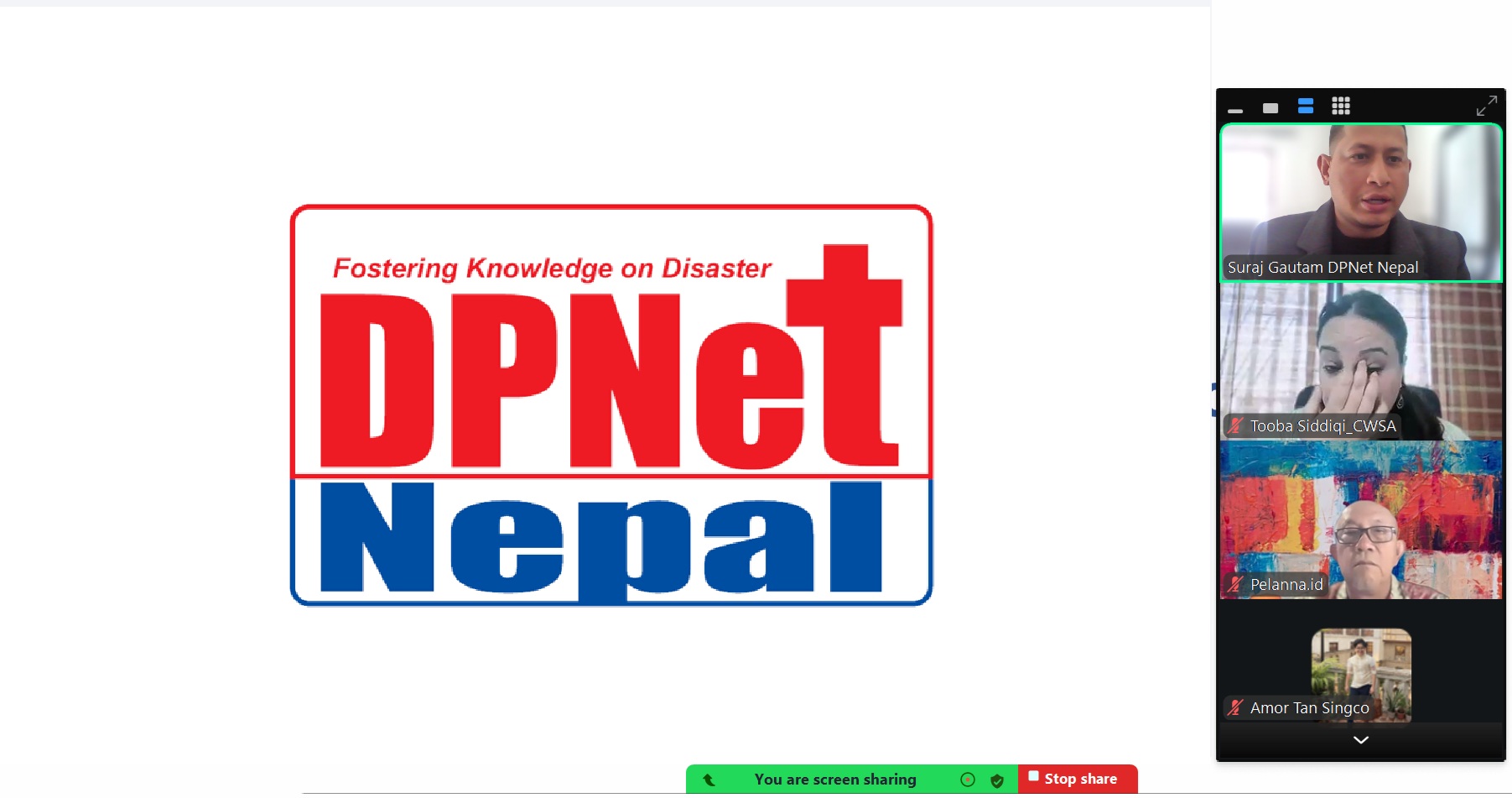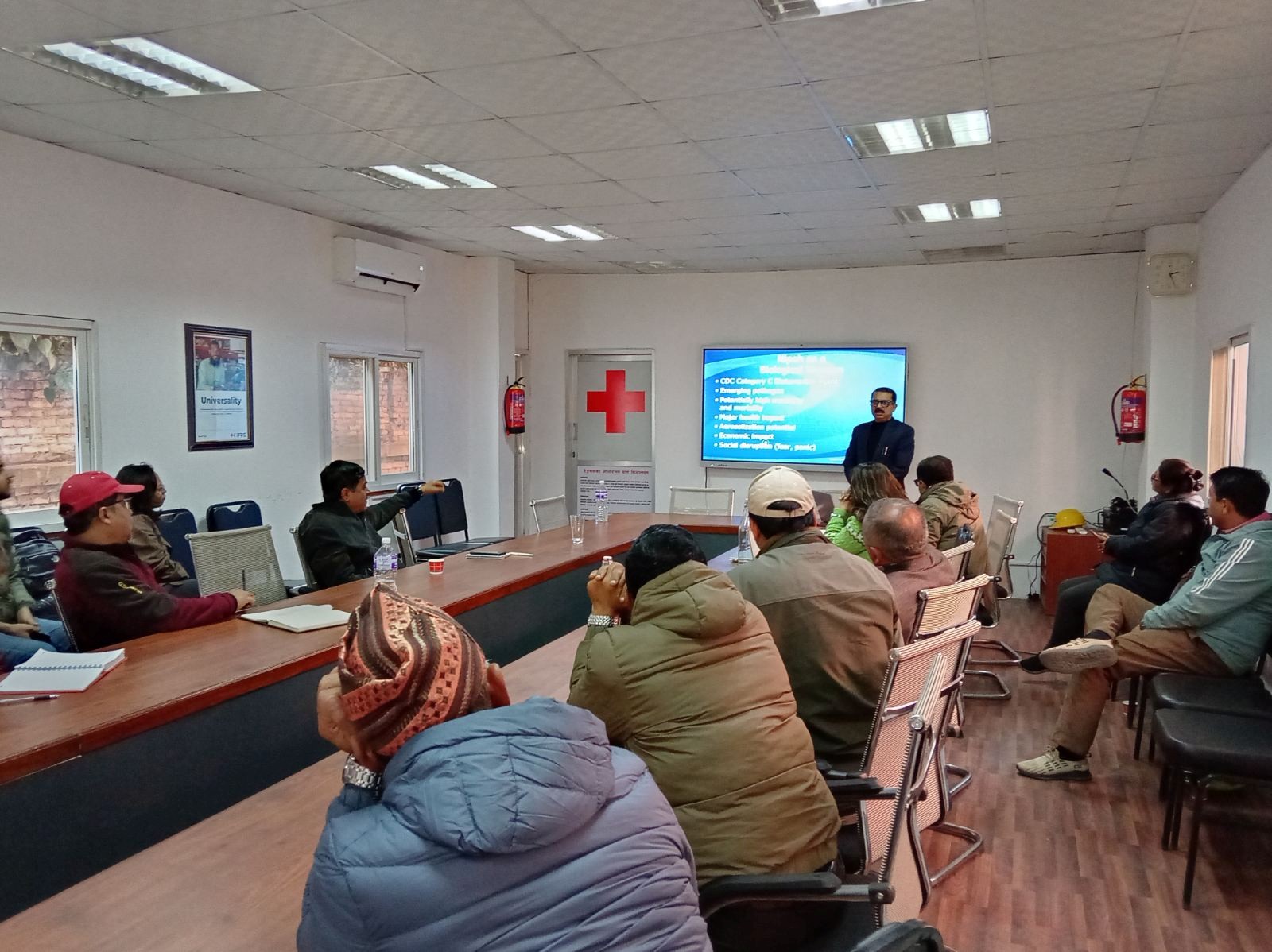Provincial DRR Policy Implementation and Learning Program at Lumbini Province

Dang, August 11, 2023 - Disaster Preparedness Network (DPNet-Nepal), with financial and technical support from USAID's Tayar Nepal, organized a significant event aimed at enhancing Disaster Risk Governance, inclusion, and accountability in Lumbini Province, Nepal. The gathering brought together key government officials, security forces, NGOs, and representatives from various sectors to address contextual issues, review progress in DRRM implementation, and offer recommendations for more effective disaster management.
The opening ceremony of the provincial event commenced with Mr. Sher Bahadur Karki welcoming all attendees. The event was chaired by Dr. Raju Thapa, Acting Chairperson of DPNet, and featured dignitaries such as Mr. Lalbabu Kawari, Secretary of Ministry of Home Affairs (MoHA), Lumbini Province, and Mr. Narulal Chaudary, Mayor of Ghorahi Sub Metropolitan City, among others. In the opening remarks, Dr. Thapa emphasized the collaborative nature of disaster management efforts at all government levels, in line with Nepal's constitutional provisions. He underscored the importance of reviewing progress against set targets, echoing the global mid-term review of the Sendai Framework for DRR.
Key insights were shared during the technical session, with Mr. Kedar Neupane, Former Secretary of the Government of Nepal, highlighting the need for inclusive disaster management strategies. He stressed the significance of pre-disaster planning and reducing hazards through effective mapping. Mr. Neupane also advocated for disaster-resilient infrastructure and collaborative mechanisms among security forces and stakeholders.
Dr. Raju Thapa, Program chair started his presentation by discussing Nepal’s earthquake history, notably the devastating Gorkha Earthquake of 2015. He highlighted Nepal's vulnerabilities to disasters. Referring to the Gorkha Earthquake of 2015 that devastated 31 districts, he emphasized the ripple effects on education due to over 19,000 classrooms being destroyed. Dr. Thapa underscored how disasters impact society on various levels, urging stronger disaster risk reduction (DRR) policies. He discussed future earthquake predictions, also highlighting the damage caused by floods and landslides.
Dr. Thapa addressed Nepal’s diverse land structure and underprepared modernization, citing induced hazard risks. Dr. Thapa delved into Lumbini Province's risk scenario, discussing preparedness efforts and past lessons. He raised concerns about policy implementation at the federal level and funding accountability. He highlighted the interconnectedness of disaster impacts on various societal systems and emphasized the importance of enhanced DRR policies at the provincial level. The presentation included risk scenarios, future predictions, and the importance of localized preparedness. The presentation concluded by focusing on NPDRR's roles in coordination and posing thought-provoking questions to engage participants underscoring the need for robust DRR policies and implementation at provincial levels to mitigate disaster impacts and foster a resilient society.
Mr. Khimananda Gyawali, Under Secretary of MOHA, Lumbini Province, outlined provincial goals for disaster risk reduction, emphasizing climate change adaptation and poverty reduction. He discussed specific strategies, including forest and construction regulations, to enhance preparedness and response capabilities.
Mr. Narulal Chaudary, Mayor of Ghorahi Sub-Metropolitan City, highlighted collaborative disaster risk reduction efforts across government levels. He underlined the shared commitment to policy formulation, implementation, and cooperation with security forces.
Mr. Chaudary voiced concerns about their preparedness gaps despite collective efforts. He advocated for implementing the National Building Code (NBC) to bolster structure resilience and called for streamlined and practical NBC implementation. He proudly shared Ghorahi's stance, only permitting construction to meet NBC standards. Recognizing resource constraints, Chaudary emphasized the common objective of reducing loss of life and enhancing disaster management. His insights emphasized Ghorahi's dedication to disaster resilience and adherence to rigorous standards.
Mr. Lalbabu Kawari, Secretary of the Ministry of Home Affairs in Lumbini Province, emphasized the paramount importance of comprehensive disaster preparedness and post-disaster planning. He revealed the province's shift towards proactive preparedness efforts and the allocation of disaster funds for pre-disaster planning, underlining the need for legal provisions.
Mr. Kawari highlighted the province's role in policy shaping and equipment support despite not being the primary responder. He expressed eagerness to collaborate with stakeholders, particularly the private sector, underlining the strategic action plan's emphasis on stakeholder involvement. Recognizing existing stockpiles of essentials in Butwal and the Armed Police Force's resources, Kawari acknowledged their limitations in addressing large-scale disasters. He stressed multi-stakeholder collaboration, citing the necessity for sustainable post-disaster shelter options beyond using schools.He extended gratitude to attendees for their contributions to the event, reinforcing the commitment to disaster preparedness and collaboration for effective risk reduction and management while concluding his discussion.
Mr. Puran Chandra Bhatta, Battalion Commander of the Armed Police Force and local municipalities shared insights on disaster response, underlining the importance of local-level preparedness and collaboration. Private sector engagement and addressing challenges posed by wildlife were also discussed.
Dr. Thapa gave a closing remark restating the importance of provincial and local-level disaster management. Dr. Thapa emphasized well-defined responsibilities, innovative approaches, and technology dissemination. He stressed the integration of disaster risk reduction into development plans and regular policy reviews.
Key recommendations emerged from the event, including inclusive disaster management, disaster-resilient infrastructure development, collaboration, local government empowerment, policy review, resource stockpiling, and private sector engagement.
This event marked a significant step towards strengthening disaster risk reduction efforts in Lumbini Province, fostering collaboration among stakeholders and emphasizing the need for proactive and holistic disaster management strategies.











